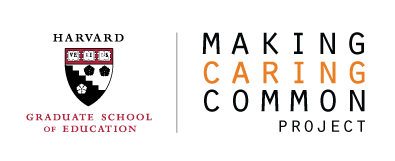Innovation and Justice: Reinventing Selective Colleges
April 2021
COVID-19 has been disastrous for colleges across the country. But it has also created extraordinary opportunities to reshape a higher education system that is highly inequitable and in dire need of reform.
This white paper from Making Caring Common, Innovation and Justice: Reinventing Selective Colleges, makes the case that America’s selective colleges can and should educate far more—and far more diverse—students. Rather than gaining status from how few students they admit, these colleges should tout a far more just and democratic metric—how many students they educate.
How to achieve this? Selective colleges could substantially increase the size of their undergraduate populations, creating exciting, rigorous pathways to bachelor’s degrees that are more accessible, appealing, and affordable for a greater diversity of students. Selective colleges could combine—in myriad ways that are just as rigorous as their current model but more affordable and appealing for many students—traditional residential experiences, field experiences domestically and/or abroad, online learning, satellite campuses, and rich and varied internships.
The paper explores the many benefits of these new pathways; feasible strategies for building them; and potential challenges and suggestions for responding to them.
Will colleges step up?
Authored by Richard Weissbourd and Jake Weissbourd with Jake Murray, Trisha Ross Anderson, Tara Nicola, and Brennan Barnard
Media contact
Alison Cashin
617.495.1959
media@makingcaringcommon.org
“For too long, selective colleges—and especially the 80 highly selective colleges that accept less than 25% of their applicants—have relied on a scarcity model to convey their value. ”
Key benefits for colleges
Deeper learning experiences in fields such as public service that advance the public good. Selective colleges can create pathways that are far more effective at realizing what they often declare as central to their mission--cultivating students' ethical character and civic purpose.
Greater attunement to the strengths and challenges of racially, economically, and culturally diverse students. New pathways would be more affordable for students and could better align with the realities of students’ lives.
More varied, engaging, and deeper learning experiences for diverse learners. Innovative models can be constructed that harness insights from learning theory and are more responsive to diverse learners.
More opportunities for people with parenting responsibilities, people engaged in part-time work, and people at different stages of their career. Pathways that are partly or fully online could broaden access to parents and soaring numbers of non-college age adults who are seeking degrees.
Greater appeal to employers. Experiential pathways are likely to make students more appealing to prospective employers looking for real-world experience.
Reduced student cost. There are myriad ways of creating pathways that are less costly for students and colleges.
Reduced harmful achievement pressure in high school. One important way to reduce achievement pressure is to markedly increase the number of spaces available at selective colleges.
Leadership in the online and hybrid learning space. Selective colleges, given their expressed commitment to high-quality pedagogy, could lead in designing innovative online and hybrid learning experiences.





